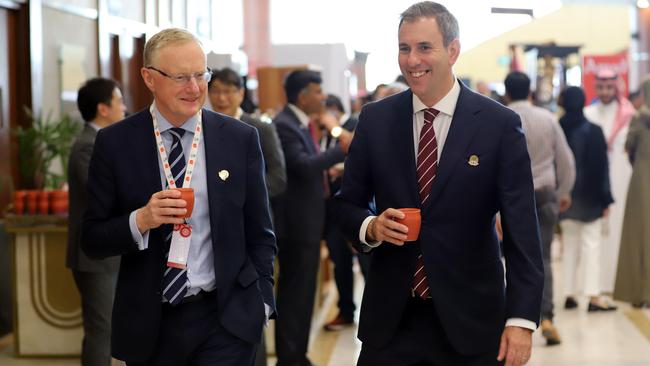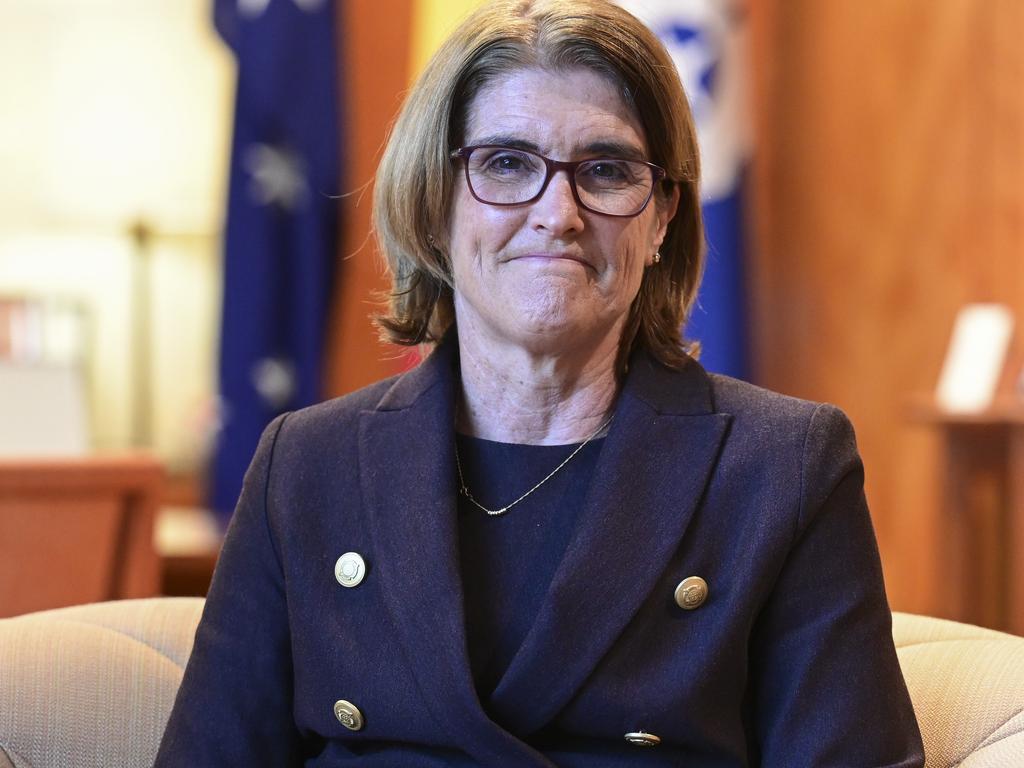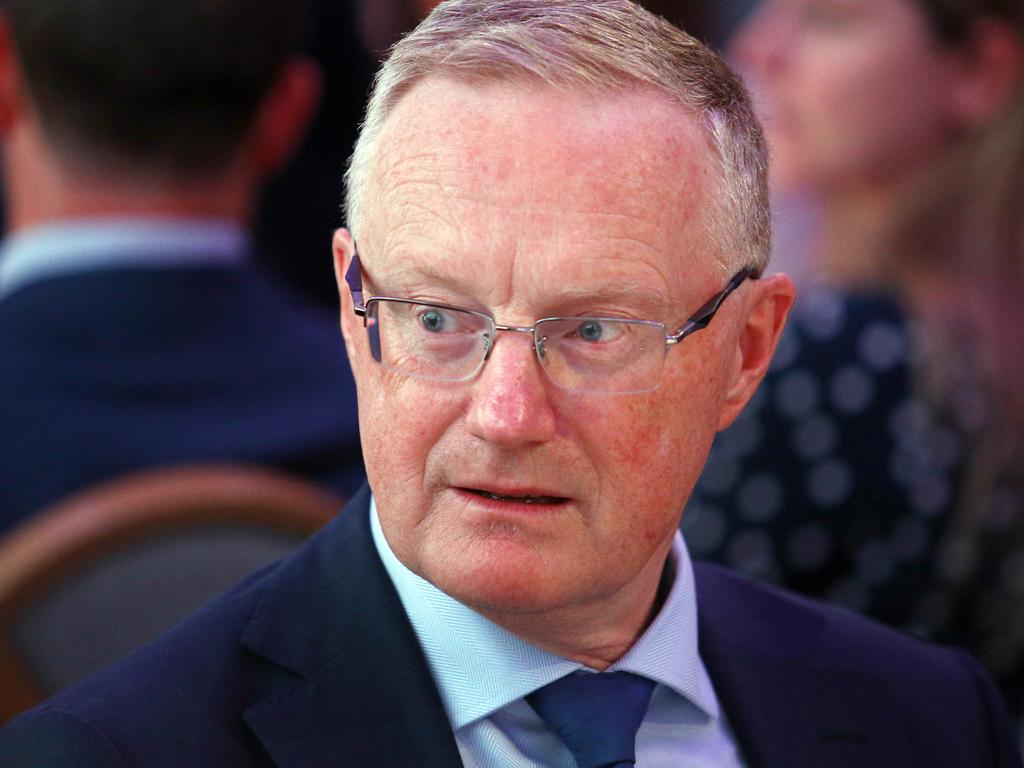Politicians lack reform drive to fix productivity, says Philip Lowe
In unscripted remarks at a G20 gathering of finance ministers and central bankers in India, the outgoing RBA chief took aim at successive governments for shirking big-picture reform.

Philip Lowe has used his final foray on the world stage to blast governments and political leaders for their indolence on structural reforms to boost productivity growth, which is imperilling material living standards, worsening income inequality and hollowing out social services.
In unscripted remarks at a G20 gathering of finance ministers and central bankers in India on Monday, the outgoing Reserve Bank governor said that while the high inflation plaguing the world was an immediate threat, “the bigger challenge is to lift productivity growth”.
“The good news is there are a lot of sensible ideas about how we can do this,” Dr Lowe told the opening session of the meetings in Gandhinagar.
“But another reality we face is the challenge here is a political one,” he said.
“It’s not about not knowing what to do; it’s a political one. And the political challenge is to get these good ideas that are already out there, through our political systems.
“If we don’t do that, then we are condemning our citizens to slower growth in real wages, smaller public services and an increased tension on income distribution.”
Dr Lowe, whose seven-year term ends in September when he is replaced by his deputy Michele Bullock, has been increasingly vocal about the consequences of Australia’s poor productivity performance, including much higher interest rates to quell inflation and endemic stagnant wages.
In a candid post-budget speech in May, Treasury secretary Steven Kennedy said the nation’s abysmal productivity performance would wipe out more than half the expected economic bounty from full employment, record migration and the commodity export boom.
Dr Lowe’s valedictory remarks were circulated by Jim Chalmers’ office.
Earlier, the Treasurer told the meeting: “Now is the time to think about what kind of economies we want to build as we emerge from the softness and the weakness in GDP growth over the course of the next 12 months or so.”
“We need to focus on the supply side. Obviously, making our supply chains more resilient is a huge part of that, but it’s not the only part of that,” Dr Chalmers said.
“We need to be more ambitious than to just catch up and patch up and go back to the sorts of economies that we had before Covid-19.”
The RBA governor told G20 finance ministers and central bank chiefs he sought to make a single point: “I want to emphasise the importance of doing what we reasonably can on productivity growth.”
“The reality that most of us face is that productivity growth has slowed down in most of our economies. That means it’s a real problem,” Dr Lowe said.
“It means lower sustainable growth in real wages; it means a limited increase in output as well.
“It means a slower expansion in the public services we want for our society and it means an increased tension in the distribution of income. So low productivity growth means economic and social problems.”
Over the decade to 2020, average annual labour productivity growth in Australia was the slowest in 60 years, falling to 1.1 per cent compared to 1.8 per cent in the previous six decades.
After the May budget, business groups criticised the Albanese government for not being bold enough to tackle supply-side reforms and effectively ignoring the wide-ranging five-year performance review by the Productivity Commission in March.
Innes Willox, chief executive of national employer association Ai Group told The Australian: “Productivity can only be solved by good policy and good policy comes from our political leaders.”
“Dr Lowe is right in that we can solve these problems with political will,” Mr Willox said.
“Sadly, there is a lack of focus on productivity in the national agenda, including, of course, in industrial relations, where improved productivity is never mentioned as an outcome of reform.”
The OECD’s former head of structural policy analysis, Dan Andrews, said: “Australia’s poor productivity performance has coincided with at least 15 years of structural reform fatigue”.
“Yes, it’s a product of political failure but our institutional architecture to drive implementation hasn’t been up to scratch,” said Mr Andrews, who is now research director and head of policy engagement at the e61 Institute.
“This matters, given many of the policy levers to boost productivity now reside at the state-level.
“With state Labor governments now coast-to-coast, the Treasurer could revive the spirit on National Competition Policy, which drove micro-economic reform during the 1990s.
“Dr Chalmers is clearly keen on remaking our economic institutions, whether it’s the Reserve Bank or the Productivity Commission, so perhaps he could look to inject some reformist zeal into the National Competition Council.
“This body was central to the implementation of the NCP and our mid-1990s productivity boom but has essentially laid dormant for a decade.”
Dr Lowe told the gathering it was “really important that we do what we can on productivity growth”.
“My hope is co-operation can help here because many good ideas have their root in multinational co-operation,” Dr Lowe said. “In this my last G20 meeting, my hope is that we work together to do what we can to lift productivity growth to increase the living standards of our people.”
Dr Chalmers said governments needed to “increasingly focus our co-ordinated efforts on how we make our economies much more productive, and that goes to some of the issues that we need to talk about in this meeting: the energy transformation, how we adapt and adopt technology, and how we get the human capital piece right”.
“We particularly need to focus on how to set up our labour markets so that as we emerge from this weakness and this softness and get on top of this inflation challenge we can build the kinds of domestic economies and global economy that our people need and deserve,” the Treasurer said.








To join the conversation, please log in. Don't have an account? Register
Join the conversation, you are commenting as Logout